Google’s 170-Page Search Quality Rater Guidelines for 2025
Oct 22, 2024
Written by Casey Bjorkdahl

Casey Bjorkdahl is one of the pioneering thought leaders in the SEO community. In 2010, Casey co-founded Vazoola after working for a Digital Marketing Agency for five years in New York City. Vazoola is now one of the fastest growing and most widely recognized SEO marketing firms in the country.
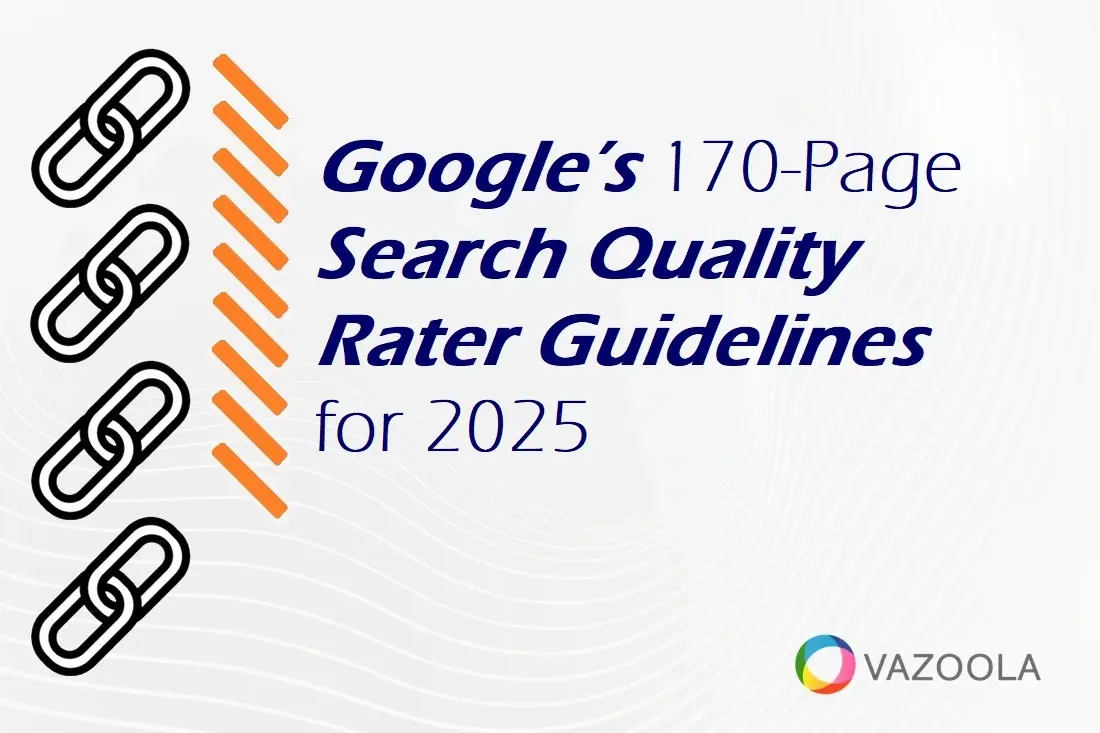
Have you ever wondered why certain websites rank the way they do? What if you were evaluating search results?
That’s exactly what Google’s human evaluators do every day. They decide if top-ranked pages are accurately ranked. They gauge whether the page provides accurate, trustworthy advice that meets searchers’ intent.
How do they know if pages are accurately ranked? Is it a matter of opinion?
Not exactly.
To make their assessments, evaluators turn to Google’s 170-page Search Quality Rater Guidelines. The guidelines help them judge if the content comes from an expert. They also determine whether it's relevant, and if it can be trusted.
Make no mistake. The evaluations don’t directly impact rankings. Even if an evaluator finds a ranking to be invalid, that feedback won’t make it higher or lower.
The evaluations do, however, play an important role in refining Google’s search algorithm. That way, it delivers the best results to its users.
Indeed, Google’s Search Quality Rater Guidelines help the search giant’s 16,000 human evaluators assess the quality of search results. Google quality raters from all over the world give Google feedback about how well pages meet user expectations. They pay particular attention to sensitive topics like health, finances, and safety.
You don’t need to base your entire SEO strategy on these guidelines. They’re meant for evaluators, not SEO professionals.
But understanding the guidelines offers valuable insights into what Google values in content. Concepts like EEAT and YMYL can help guide your content creation strategy.
Key Takeaways:
-
Human evaluators use these guidelines to assess the quality of search results, though their feedback does not directly impact rankings.
-
Content that affects health, finances, or safety must come from trustworthy, expert sources to rank well in Google’s search results.
-
Google evaluates the credibility of both the content and its authors, making EEAT an essential factor for higher rankings, especially for YMYL topics.
-
Google uses this scale to assess how well content satisfies a user’s search query, emphasizing the importance of aligning content with search intent.
-
Google encourages content that focuses on providing value to users, rather than gaming the system with keyword stuffing or SEO tricks.
Table of Contents:
5 Takeaways from Latest Google Quality Rating Guidelines
170 pages? That’s a lot to read. What’s included in Google’s Search Quality Evaluator Guidelines?
The Google SQRG covers a wide range of topics. Each one impacts how users interact with your content.
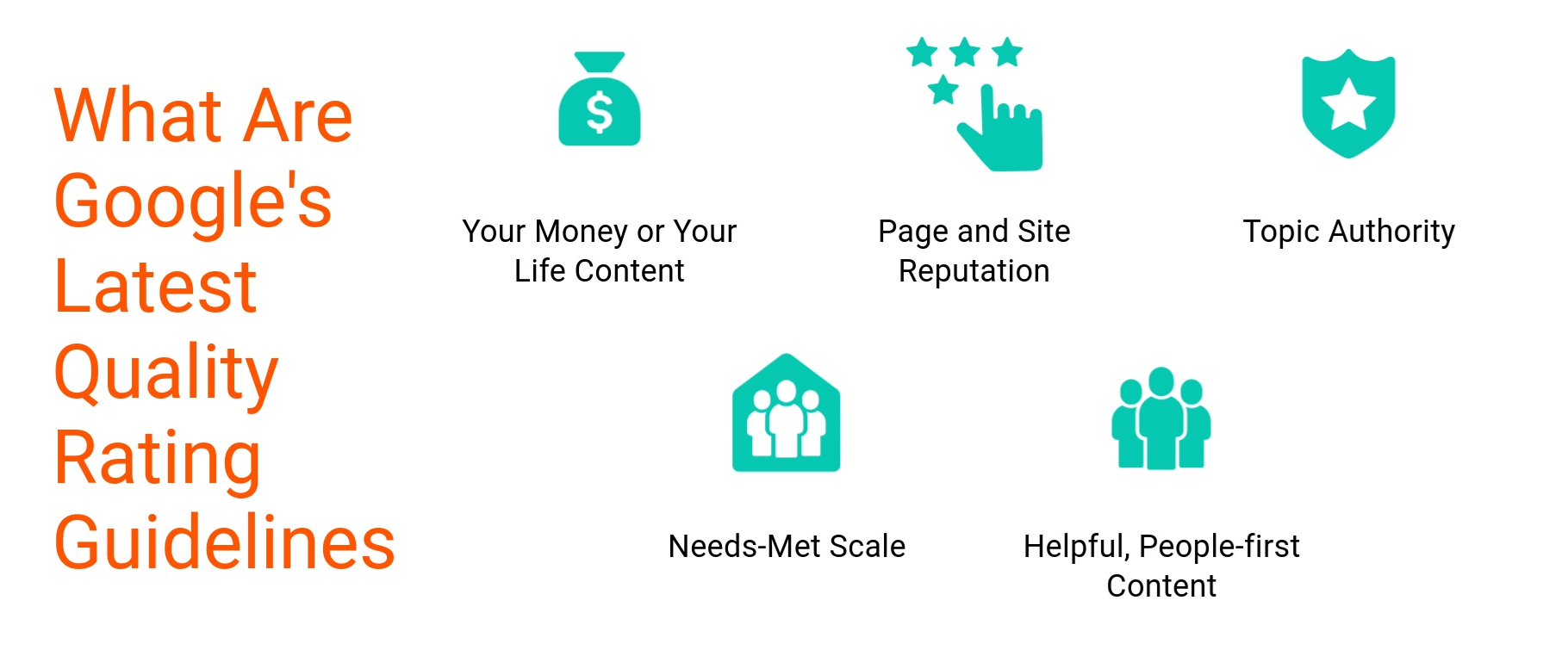
Your Money Or Your Life Content
YMYL content affects a person’s health, financial stability, or safety. Google places a higher standard on this type of content. To rank, Google requires it to be created by experts or organizations with a trustworthy reputation. YMYL keywords and topics include medical advice, legal services, and financial tips.
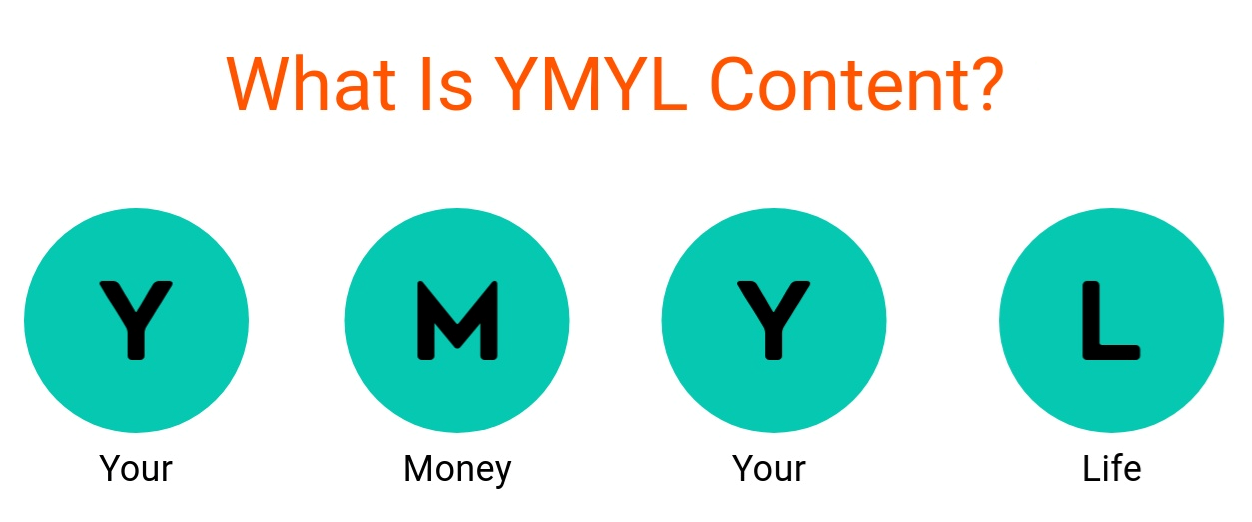
If you’re publishing YMYL content, make sure the information is accurate, current, and well-researched. You can read more about YMYL pages in Google's guidelines.
Page and Site Reputation
Reputation is one of the more significant updates to the guidelines. That includes both page and site reputation. Google increasingly prioritizes content from reputable sources, especially with YMYL content. The website’s reputation – as well as the expertise of its authors – is key to how the search engine ranks the page.
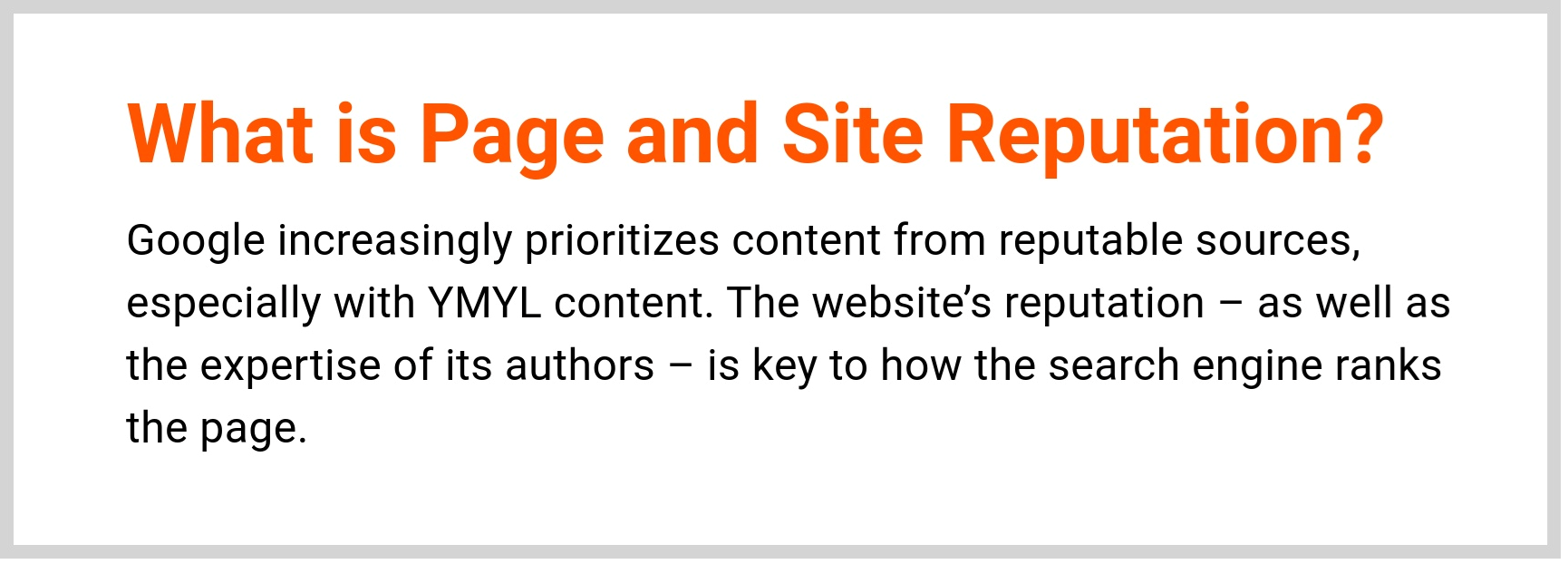
Want to establish a positive reputation? Regularly update your content with fresh, relevant information. Make sure your authors have the appropriate credentials.
Google’s guidelines also recommend reviewing the website’s reputation. Take a look at user feedback and external reviews. These could affect how the content is perceived by searchers.
Find out how Vazoola can help with reputation management services. You can read more about YMYL on page 11 of Google’s guidelines.
Topic Authority
EEAT—Experience, Expertise, Authority, and Trustworthiness—is a central concept of the Google Quality Rater guidelines. It refers to the credibility of the content, the expertise of the author, and the overall trustworthiness of the website.
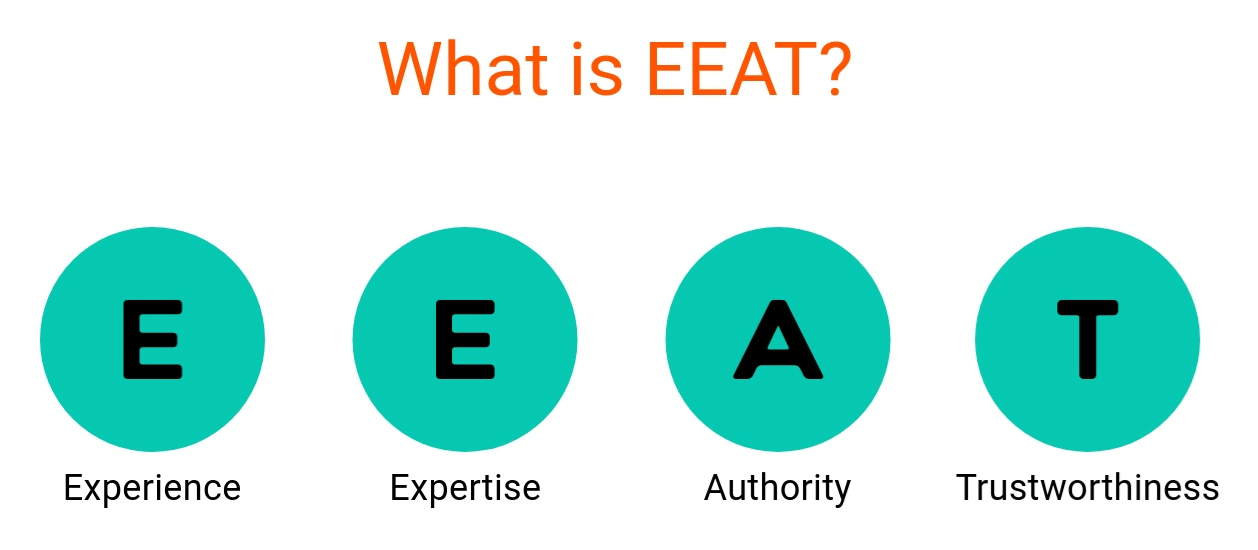
For example, Google might give more weight to a financial blog written by a certified accountant than it gives a general-interest blog offering investment advice.
When developing content, make sure you highlight the experience of your authors and the authority of your website on specific topics. You can do this by providing well-researched information, citing authoritative sources, and ensuring your authors have the relevant experience. For a more detailed breakdown of EEAT, see page 26 of the Google search quality evaluator guidelines.
Needs-Met Scale
The Needs-Met Scale is another tool Google uses to evaluate content quality. It measures how well the content satisfies a user’s search query. Content that fully addresses a user's needs will receive higher ratings from a Google rater. So, it’s more likely to appear prominently in search results.
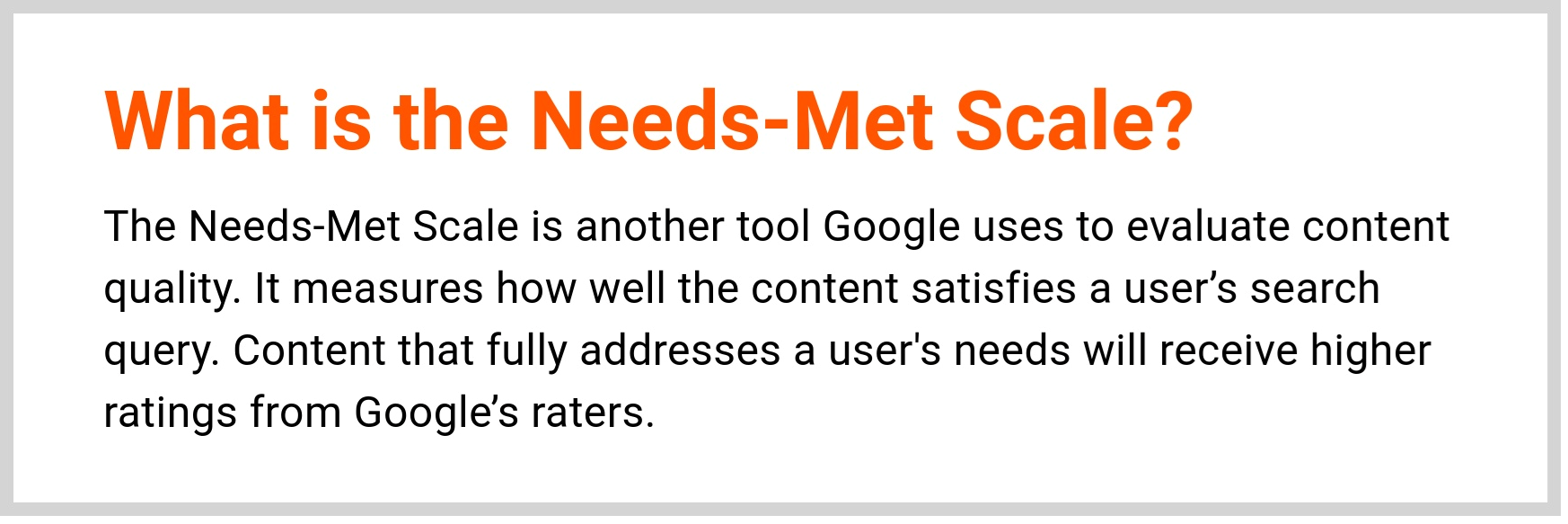
To make sure your content meets user needs, consider the intent behind the search query. Are users looking for basic information, expert advice, or actionable steps? By aligning your content with user intent, you can improve the chances of appearing higher in the search results.
Helpful, People-First Content
Google emphasizes people-first content. What is people-first content, you might ask? It focuses on helping users rather than gaming search algorithms. The Google rater guidelines recommend content that prioritizes value for the user rather than stuffing keywords for SEO purposes. The trend continues to evolve in 2024, with more focus on helpful content designed for humans, not bots.
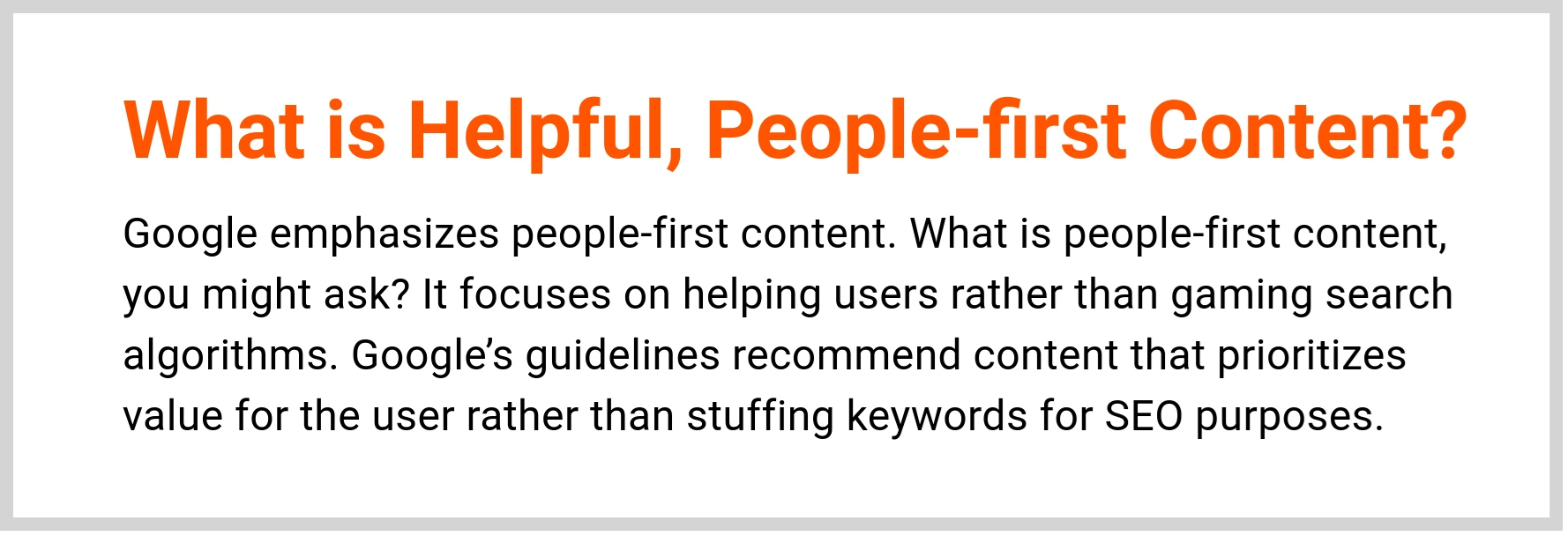
Make sure to write content that answers the user’s questions directly, provides clear value, and avoids misleading tactics like clickbait. People-first content addresses the user’s needs effectively and authentically.
FAQs About Google Quality Search Ratings
Do SQRG affect live rankings?
No, the ratings given by quality raters do not directly impact live rankings. Instead, the feedback is used to improve Google’s algorithms over time. Google search quality raters evaluate how well a page meets the user’s needs and provide insights that help Google refine its search results.
If quality ratings don’t impact search, what’s the purpose (why should I care)?
While quality ratings don’t directly affect your rankings, they offer valuable insights into what Google values in content. By understanding and applying the Google search quality guidelines, you can create content that aligns with Google’s priorities and stands a better chance of ranking higher.
Who are Google search quality raters?
Google quality raters are independent contractors hired to evaluate search results. Their job is to provide feedback on how well pages meet user needs based on specific criteria. While they don’t have a direct influence on rankings, their feedback helps Google improve its algorithm.
What Is EEAT, and why is it important?
EEAT stands for Experience, Expertise, Authority, and Trustworthiness. It is a key concept in the Google Search Quality Rater Guidelines and plays an essential role in how raters evaluate content. EEAT helps determine whether a page’s content is reliable and credible. Pages with high EEAT scores are more likely to rank well, especially for YMYL topics, where trust and accuracy are critical.
How does Google define low-quality content?
Google defines low-quality content as pages that fail to meet the user’s needs, lack trustworthiness, or present outdated, inaccurate, or misleading information. Pages with little original content, excessive ads, or content that appears solely for SEO purposes also fall under this category. If you make sure your content is helpful, well-researched, and trustworthy, you can help avoid low-quality ratings.
Can I improve my rankings by following the SQR guidelines?
While following the Search Quality Raters Guidelines can improve your content’s overall quality, it does not guarantee higher rankings. The search quality raters guidelines are designed to train human raters, not directly affect rankings. However, by aligning your content with the principles outlined in the Google quality guidelines—such as focusing on user intent, EEAT, and producing helpful content—you can improve your chances of performing well in search results over time.
What does a search quality rater do?
A search quality rater is an independent contractor hired by Google to evaluate the quality of search results. Using the Search Quality Rater Guidelines, they assess whether a page meets the user’s intent, provides accurate information, and is trustworthy. Their feedback is used to improve Google’s algorithms over time, but it doesn’t directly impact the rankings of the pages they review.

